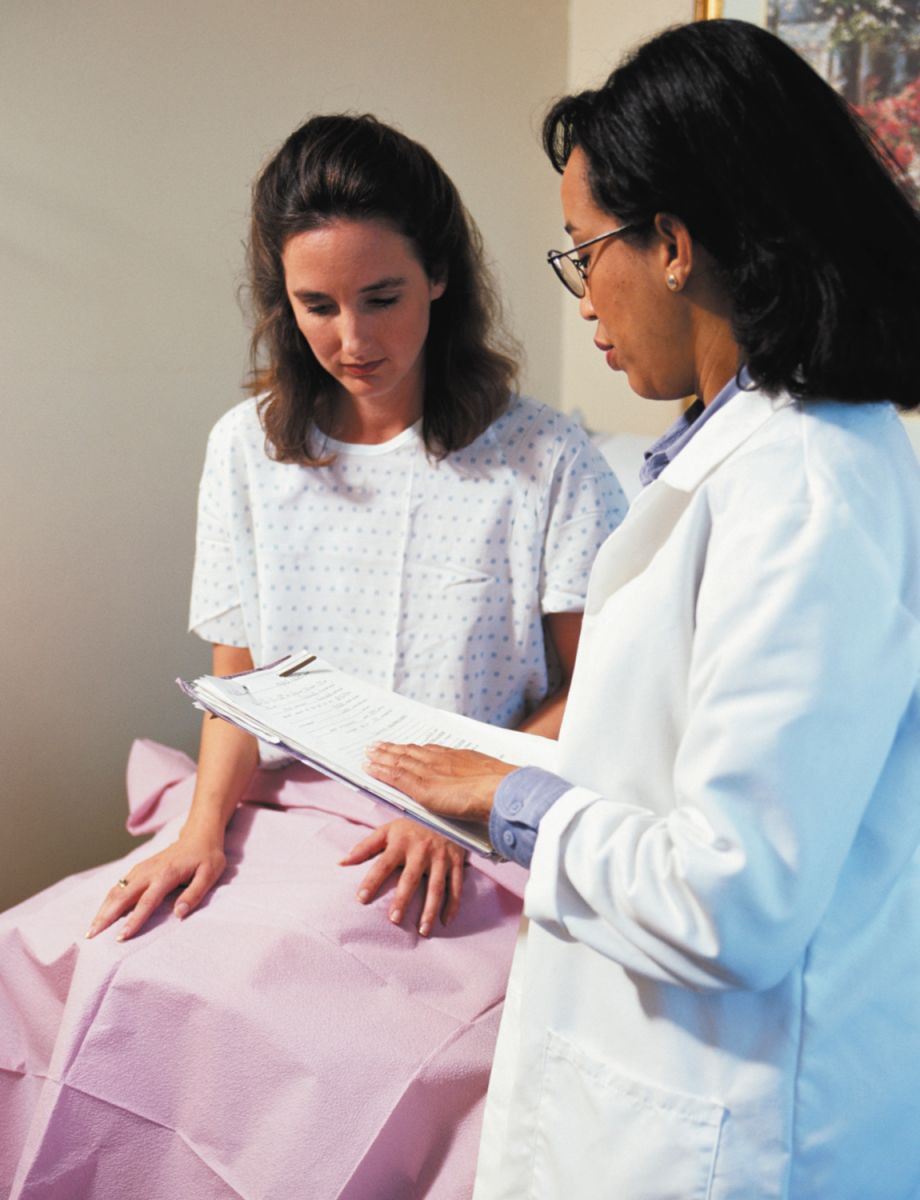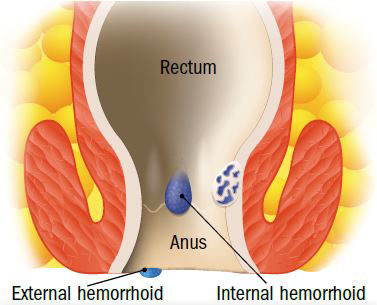
Less butter, more plant oils, longer life?

Healthier planet, healthier people

Counting steps is good — is combining steps and heart rate better?

Appendix pain: Could it be appendicitis?

Can saw palmetto treat an enlarged prostate?

How does Ozempic work? Understanding GLP-1s for diabetes, weight loss, and beyond

Zinc: What it does for the body, and the best food sources

Respiratory health harms often follow flooding: Taking these steps can help

Tips to leverage neuroplasticity to maintain cognitive fitness as you age

Can white noise really help you sleep better?
Bladder & Bowel Archive
Articles
Did exercise cause my prolapsed bladder?
Ask the doctors
Q. I was recently diagnosed with a prolapsed bladder. The doctor said it could be due to too much exercise. I've been exercising for more than 40 years and wonder if this is more likely to be age-related. Should people worry about exercise causing this problem?
A. When the bladder drops down from the pelvis and protrudes into the vagina, it's said to be prolapsed. This condition, known as cystocele, is uncomfortable and can also cause urinary problems.
Is my urinary difficulty a normal part of aging?
Ask the doctors
Image: © Stratol/Getty Images
Q. Sometimes I urinate normally, but often I have to wait for the stream to start, or it takes much longer to finish. It may even stop and start, so I have to sit on the toilet much longer than in the past. I do feel that I empty my bladder, but it takes a while. Is this normal?
A. Urinary problems after menopause are common and may be related to age-related hormonal shifts or may have a separate medical cause. For this reason, it's always best to visit your doctor to discuss the problem. Difficulty starting or maintaining a stream of urine may be caused by many factors, including a blockage, an infection, certain medications, or a nerve problem that's affecting your brain's ability to get signals to the bladder, among others. Your doctor will likely recommend tests to search for the underlying cause and to customize your treatment.
Screening guidelines for women: Incontinence and cervical cancer
News briefs
Older women: Take note of two new screening guidelines. One is for cervical cancer screening. Recommendations from the U.S. Preventive Services Task Force, published online Aug. 21, 2018, by the Journal of the American Medical Association, suggest that many women ages 30 to 65 can now approach cervical cancer screening in several ways: they can get a cervical cytology (Pap) test every three years; a test for human papillomavirus (which causes most cervical cancer cases) every five years; or they can get a combination of both tests every five years. If you're older than 65, the USPSTF recommends against screening unless you haven't had adequate tests before or you're at high risk for cervical cancer. The other screening guidelines are for urinary incontinence. They come from the Women's Preventive Services Initiative and were published online Aug. 14, 2018, by Annals of Internal Medicine. The guidelines recommend that women get screened for incontinence yearly, regardless of age. "I completely agree with brief annual screening for urinary incontinence for women. A simple question can be used to screen for it, such as, 'Do you have any bothersome urinary incontinence or urinary leaking during the day or night?' If the incontinence is treated early, in some cases, it will not progress and the patient will be able to avoid more invasive, costly, risky, or time-consuming treatment options," says Dr. May Wakamatsu, vice chair of gynecology services at Harvard-affiliated Massachusetts General Hospital.
Are vaginal laser treatments safe?
Ask the doctors
Image: © scibak/Getty Images
Q. I just saw that the FDA issued a warning on vaginal laser procedures. Are these procedures dangerous?
A. More study of these laser procedures is needed to conclusively determine if they're safe and effective for vaginal conditions. If you're considering one of these procedures, have a detailed conversation with your doctor about traditional medical therapies as well as the pros and cons of laser treatments. The FDA issued a warning on July 30 about energy devices (laser therapy).
Anticholinergic drugs linked with dementia
In the journals
Anticholinergic medications used to treat bladder conditions, Parkinson's disease, and depression are associated with an increased risk of dementia, according to a large study published online April 25, 2018, by The BMJ. Anticholinergic drugs help to contract and relax muscles. They work by blocking acetylcholine, a substance that also transmits messages in the nervous system. In the study, researchers compared the medical records of 40,770 people older than 65 who were diagnosed with dementia and 283,933 seniors without.
They found that people diagnosed with dementia were up to 30% more likely to have been prescribed anticholinergic medications for Parkinson's, bladder problems, or depression. Frequently prescribed anticholinergic drugs include procyclidine (Kemadrin) for Parkinson's; tolterodine, oxybutynin, and solifenacin (Vesicare) for urological conditions like overactive bladder or incontinence; and amitriptyline, dosulepin, and paroxetine for depression. However, there was no association between dementia and anticholinergic drugs used to treat other common conditions like hay fever, travel sickness, and stomach cramps.
Keeping kidney stones at bay
Kidney stones strike twice as many men as women, but there are simple ways to stop their formation.
Image: © pixologicstudio/Getty Images
If you've ever passed a kidney stone, you will never forget it, and you'll do anything to avoid it again. If you haven't, here is what you could expect: unbearable pain centered in your mid- to lower back that often comes in waves for 20 minutes to an hour at a time, until the tiny stones finally pass out of the body through your urine.
Unfortunately, as you age, the odds of getting kidney stones tends to rise. "Kidney stones are more common in men than in women, and in about half of people who have had one, kidney stones strike again within 10 to 15 years without preventive measures," says Dr. Brian Eisner, co-director of the Kidney Stone Program at Harvard-affiliated Massachusetts General Hospital.
Rapid urine test could reduce unnecessary antibiotic use
Research we're watching
Image: © moodboard/Thinkstock
A new test might help doctors better treat patients with urinary tract infections, according to a study published in the Oct. 4, 2017, issue of Science Translational Medicine. These infections prompt some eight million doctor visits each year, and doctors often prescribe antibiotics to treat the condition. However, sometimes the bacteria they are attempting to treat are resistant to first-line antibiotics. The delay caused by the ineffective medication can, in some cases, cause the patient's condition to worsen and lead to complications. To eliminate this antibiotic guesswork, researchers developed a new quick-acting antimicrobial susceptibility test that not only tells the doctor within 30 minutes whether the patient has a urinary tract infection, but also what type of bacteria caused it and what drugs will best treat it. The test can also quickly identify cases where antibiotics aren't needed at all, preventing overuse of antibiotics, which can promote resistance. The same type of rapid testing, might eventually be of use in identifying the best anti-biotics for other types of bacterial infections as well.
Help for hemorrhoids
One of the most embarrassing conditions also can be one of the easiest to treat and manage.
Image: © ttsz/Thinkstock
Hemorrhoids are without doubt among the most unpleasant of health topics. But if you have suffered from them, you may find comfort in knowing that you are not alone.
More than 75% of people ages 45 and older have had hemorrhoids, with symptoms like rectal pain, itching, and bleeding after a bowel movement.
Men may want to rethink surgery for early-stage prostate cancer
In the journals
Observation only may be the best medicine for men with early-stage prostate cancer, suggests a 20-year study published online July 13, 2017, by The New England Journal of Medicine. Early-stage prostate cancer means the cancer is small, confined to the prostate gland, and can only be detected with a biopsy.
Researchers randomly assigned 731 men, average age 67, with localized prostate cancer to receive either surgery or observation only. At the 20-year follow-up, 62% of the men who had prostate cancer surgery had died of other causes, while only 7% died from prostate cancer. In comparison, 67% of the men assigned to observation died from other causes and 11% from prostate cancer. The absolute differences in mortality were not significant.
Antibiotic use linked to increased risk of precancerous colon polyps
Research we're watching
Recent evidence suggests that antibiotics, which affect the makeup of intestinal bacteria, might be associated with an increased risk of colorectal cancer. A team led by researchers from Harvard Medical School wanted to see if antibiotic use is also associated with adenomatous polyps, precursors of colon cancer that significantly increase the risk of developing the disease.
The team analyzed data from 16,642 women ages 60 or older participating in the Nurses' Health Study. They first looked at participants' antibiotic use from ages 20 through 59 and in the most recent four years. They also checked the results with the women's colonoscopies and found 1,195 cases of adenomatous polyps.

Less butter, more plant oils, longer life?

Healthier planet, healthier people

Counting steps is good — is combining steps and heart rate better?

Appendix pain: Could it be appendicitis?

Can saw palmetto treat an enlarged prostate?

How does Ozempic work? Understanding GLP-1s for diabetes, weight loss, and beyond

Zinc: What it does for the body, and the best food sources

Respiratory health harms often follow flooding: Taking these steps can help

Tips to leverage neuroplasticity to maintain cognitive fitness as you age

Can white noise really help you sleep better?
Free Healthbeat Signup
Get the latest in health news delivered to your inbox!
Sign Up









